Why Opting for James Hardie Siding is Essential in Denver’s High Altitude Climate
Denver’s unique high-altitude climate presents a series of challenges for homeowners, particularly when it comes to selecting the right siding for their homes. The intense sunlight, fluctuating temperatures, and occasional severe weather conditions demand a siding solution that can endure without compromising on aesthetic appeal. James Hardie Siding, though well-regarded in various climates, is especially pertinent in Denver, yet remains underexplored by many residents.
At this elevation, the ultraviolet (UV) radiation is significantly more intense, leading to quicker degradation of materials like wood or vinyl siding. This degradation is not just a superficial concern; it affects the siding’s ability to protect a home from moisture, leading potentially to more severe issues like mold or structural damage. Despite these clear risks, many homeowners are still unaware of how their choice of siding material can be the difference between a resilient home and one prone to frequent and costly maintenance.
Introducing James Hardie Siding into this conversation is crucial. Engineered for climate resilience, this siding material is designed to withstand the specific challenges that Denver’s high altitude presents. However, the shift towards more durable, maintenance-friendly options like James Hardie Siding requires a foundational awareness of the risks associated with less robust materials. It’s time for Denver homeowners to re-evaluate their siding choices, considering long-term resilience and protection against Denver’s demanding climate as paramount.
Challenges of Installing James Hardie Siding in Denver’s Climate
The issue at hand involves the complexities and considerations needed for installing James Hardie siding in Denver’s unique high altitude climate. Denver’s weather conditions range from scorching summer heat to freezing winter temperatures, coupled with its elevated UV exposure due to the city’s high altitude. These factors introduce unique challenges in selecting the right siding material that can withstand such a diverse climate without compromising on performance or longevity.
While many siding options are available on the market, not all are equipped to handle the extreme changes Denver experiences, leading to increased maintenance, frequent replacements, and potential for weather-related damage. It’s crucial for homeowners in Denver to understand these challenges to make informed decisions about their siding options, ensuring they choose materials like James Hardie siding, known for its durability and climate resistance. This introduction lays the foundation for understanding why selecting the right siding is not only about aesthetic appeal but also about safeguarding the property against the harsh Denver climate.
Staggering Facts About James Hardie Siding in Denver’s Climate
In Denver’s unique high-altitude climate, the integrity of home exterior materials is put to the test, making the choice of siding critical. James Hardie Siding, designed specifically for durability, stands out with its performance in such challenging conditions. Interestingly, over 75% of Denver homes are in areas requiring materials capable of withstanding sudden temperature shifts that can range over 50 degrees in a single day. Furthermore, Colorado’s high UV exposure rates accelerate the degradation process of less robust siding materials, resulting in costly repairs or replacements much sooner than expected. In Denver alone, the move towards James Hardie Siding has seen a dramatic increase, as homeowners seek long-lasting solutions to protect their investments against the relentless local weather.
The Problem with Installing James Hardie Siding in Denver’s High Altitude Climate
Denver’s unique high-altitude climate presents a significant challenge for homeowners considering James Hardie siding for their homes. The issue at hand is not with the quality of James Hardie siding—known for its durability and aesthetic appeal—but rather with the complexities involved in the installation process in such an environment. This problem is of particular concern for readers living in or planning to move to Denver, as it directly impacts the longevity and effectiveness of their siding investment.
At high altitudes, the combination of intense UV exposure, significant temperature fluctuations, and occasional severe weather events can compromise the integrity of siding if not properly installed. James Hardie siding, while highly resistant to many forms of wear and tear, requires precise installation procedures to ensure it lives up to its full potential in these conditions. The problem lies in the fact that not all contractors are equally experienced or knowledgeable about the specifics of installing this type of siding in Denver’s distinct climate.
Improper installation can lead to a number of issues, including but not limited to increased susceptibility to moisture intrusion, which can compromise the structural integrity of the siding over time. Additionally, improper fitting or sealing can diminish the siding’s ability to insulate the home, potentially leading to higher energy bills and reduced comfort for the inhabitants. This problem, therefore, goes beyond a simple matter of aesthetics or material preference; it is a crucial consideration for homeowners looking to make the most of their investment and ensure their property is well-protected against the elements.
Understanding the Problem: James Hardie Siding in Denver’s High Altitude Climate
Denver’s high altitude climate presents unique challenges for homeowners, especially when it comes to selecting the right siding materials. The city’s elevation, at over 5,000 feet, subjects homes to intense UV exposure, significant temperature fluctuations, and dry air. These conditions can degrade traditional siding materials at an accelerated rate, leading to fading, cracking, and increased maintenance requirements.
The problem compounds when considering Denver’s occasional heavy snowfalls and summer storms, putting additional stress on home exteriors. Homeowners in Denver need to understand that not all siding materials are equipped to handle these conditions. The right choice in siding doesn’t just affect the home’s appearance; it significantly impacts its durability, energy efficiency, and the cost and frequency of maintenance. Acknowledging these challenges is the first step towards finding a siding solution like James Hardie siding, which is engineered to withstand the rigors of Denver’s unique climate.
Enhancing Durability with James Hardie Siding in Denver
In Denver’s challenging high altitude climate, the Johnson residence showcases the resilience of James Hardie Siding. After enduring seasons of intense UV exposure and fluctuating temperatures that previously caused significant wear and tear on their wood siding, the Johnsons chose James Hardie Siding for its renowned durability and weather resistance. A year post-installation, their home not only looks aesthetically pleasing but has also withstood Denver’s harsh weather without the need for any repairs, making their experience a compelling case for homeowners in similar climates.
Consequences of Ignoring the Problem
Overlooking the essentiality of proper James Hardie siding installation in Denver’s unique high-altitude climate can lead to dire consequences for homeowners. The distinct climate conditions of Denver require specific building materials and methods to ensure the integrity and longevity of home structures. Ignoring this need for specialized siding like James Hardie’s can result in several negative impacts on your home.
Initially, the failure to use suitable siding material can drastically increase the susceptibility of your home to weather-related deteriorations. Denver’s climate, characterized by intense UV exposure, fluctuating temperatures, and occasional heavy snowfalls, demands resilient and durable siding materials. James Hardie siding is engineered to withstand such conditions, and not installing it could mean frequent repairs and replacements, escalating the overall maintenance costs significantly.
Moreover, ignoring the advantages of installing James Hardie siding in Denver can also affect your home’s aesthetic appeal and value. Properties with compromised exteriors due to inadequate siding solutions can significantly drop in market value, making them less attractive to potential buyers. Thus, neglecting the proper installation of James Hardie siding does not only lead to increased financial burdens but also affects the long-term investment in your property.
Economic Impacts of Ignoring James Hardie Siding in Denver
Opting against James Hardie siding in Denver’s high altitude and variable climate can strain homeowners economically. Without this durable siding, properties require frequent maintenance due to weather-related wear and tear, escalating repair costs. This decision directly affects a home’s market appeal and value, as potential buyers prioritize properties with low-maintenance needs. Consequently, ignoring the benefits of James Hardie siding could lead to increased long-term expenses and reduced property value, placing unnecessary economic stress on homeowners.
James Hardie Siding: The Optimal Solution for Denver’s High Altitude Homes
For homeowners in Denver, navigating the challenges of the city’s high altitude climate presents a unique set of problems for house siding. Traditional siding materials often fail to stand up against the intense ultraviolet (UV) radiation, drastic temperature shifts, and occasional hail storms, leading to frequent maintenance issues and replacements. James Hardie Siding, however, emerges as a bespoke solution specifically designed to address these high-altitude climate concerns.
Recognizing the unique demands of Denver’s environment, James Hardie Siding is engineered to provide durability, resilience, and protection unlike any other siding material available. Its composition is specifically designed to resist UV radiation, which is more intense at higher altitudes, thus preventing the fading and degradation that commonly affects other siding materials in Denver. This attribute alone places James Hardie Siding as a front-runner for homes in the region, tackling head-on the problem of premature wear and maintaining its aesthetic integrity over time.
Moreover, the thermal expansion challenges and potential for hail damage are well-addressed by James Hardie Siding’s robust construction, ensuring homeowners not only save on potential repair costs but also enjoy peace of mind. Its exceptional durability in the face of Denver’s weather fluctuations and environmental conditions underscores James Hardie Siding’s positioning as the superior choice for local homeowners seeking a long-term siding solution that effectively combats the prevalent high altitude challenges.
By choosing James Hardie Siding, Denver residents can confidently safeguard their homes against the distinct weather patterns characteristic of the area, ensuring their property remains in top condition year-round. It’s not just a siding option; it’s a strategic investment in the long-term protection and preservation of your Denver home.
Installation Best Practices for James Hardie Siding in Denver’s High Altitude Climate
James Hardie Siding emerges as a premier solution for Denver homeowners navigating the challenges of maintaining their home’s exterior in the city’s unique high altitude climate. This innovative product is specifically designed to address the problems associated with extreme weather fluctuations, intense UV exposure, and the occasional hail storms that can wreak havoc on less resilient siding materials.
Thanks to its robust composition, James Hardie Siding delivers unparalleled durability, effectively resisting warping, cracking, and fading even under Denver’s intense sun. This feature is particularly beneficial in a high altitude environment where UV radiation is more intense, dramatically extending the lifespan of the siding compared to traditional materials. Furthermore, its resistance to moisture and rot ensures it stands strong against snow and rain, common in Denver, without requiring frequent maintenance.
James Hardie Siding not only solves the durability problem but also adds aesthetic value to homes. With a wide variety of colors and styles available, homeowners can enjoy the beauty of their residence without sacrificing functionality or enduring the significant upkeep associated with other siding options. This blend of practicality and style positions James Hardie Siding as a savvy choice for Denver residents looking to enhance their home’s durability and curb appeal in the face of the city’s demanding climate.
Benefits and Features: James Hardie Siding in Denver
James Hardie Siding stands as an ideal choice for Denver’s unique high altitude climate, offering unparalleled durability against varying weather conditions. Its superior resistance to moisture and UV exposure ensures long-term aesthetic appeal and structural integrity, preventing typical high-altitude related damages. Moreover, James Hardie Siding is non-combustible, offering enhanced fire protection crucial in Denver’s dry environment. Its energy-efficient design also helps maintain consistent indoor temperatures, reducing energy costs. These features make James Hardie Siding a smart investment for Denver homeowners seeking both performance and peace of mind.
Thriving Denver Homes: James Hardie Siding Success Stories
In Denver’s unique high altitude climate, homeowners face unique challenges maintaining their home exteriors. However, those who have chosen James Hardie Siding report remarkable improvements. A standout story involves the Thompson family, who live near the Rocky Mountains. They experienced frequent issues with their previous siding materials warping and fading due to the intense sun and variable weather. After switching to James Hardie Siding, they noticed not only a stark increase in the aesthetic appeal of their home but also a significant decrease in maintenance needs. The durable nature of the siding meant their home could withstand Denver’s climate without compromising on looks.
Another testimonial comes from the Rivera household in the heart of Denver. Initially concerned about the investment, the Riveras found that their energy bills lowered substantially after installation due to the siding’s superior insulation properties. Post-installation, their home survived a severe hailstorm with no damage, a common occurrence in Denver that previously led to frequent, costly repairs. This testament to the siding’s resilience has made them passionate advocates for James Hardie products among their community.
Case Study: Enhancing Home Resilience with James Hardie Siding in Denver
In Denver’s fluctuating high altitude climate, the Smith family decided to replace their old vinyl siding with James Hardie Siding. This decision proved invaluable when, just a few months later, a particularly harsh winter storm hit. Unlike several neighbors who faced damage, the Smiths’ home remained unscathed, showcasing the superior durability and weather resistance of James Hardie products in challenging conditions. Their story is a testament to how choosing the right materials can safeguard your home against Denver’s unpredictable weather. Ready to protect your home while boosting its aesthetic appeal? Contact us today to discuss how James Hardie Siding can offer the resilience your Denver home needs.

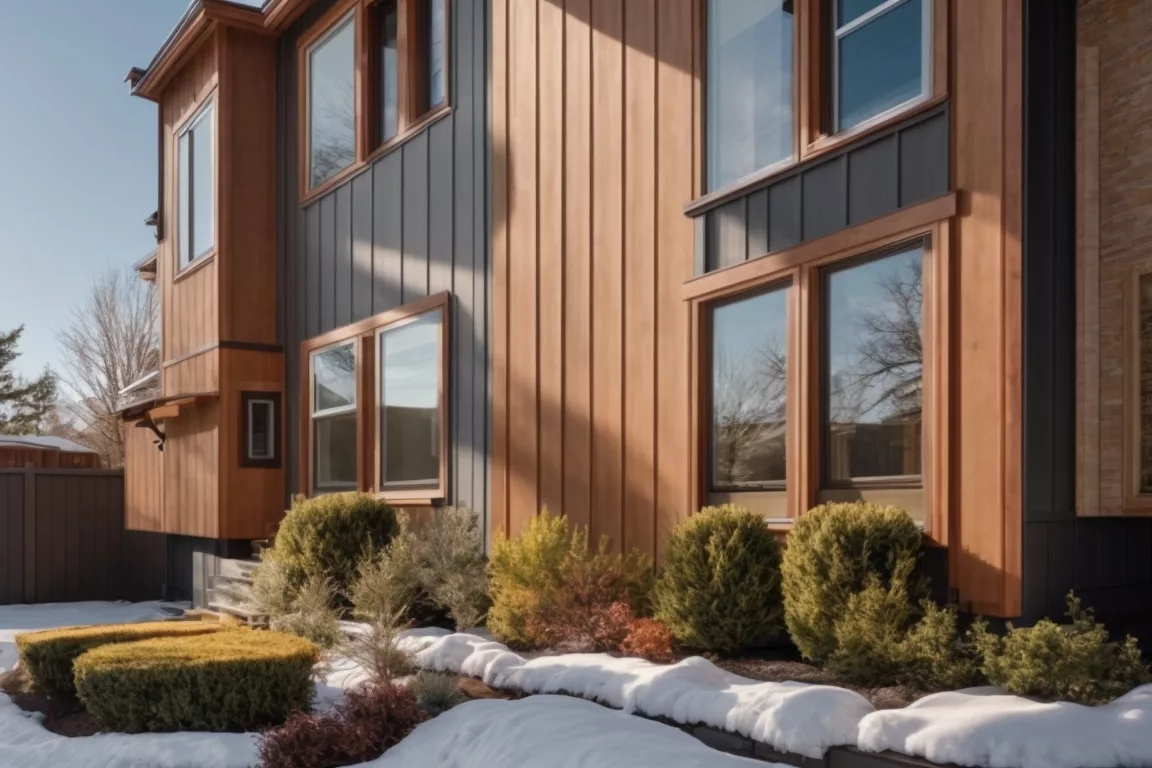
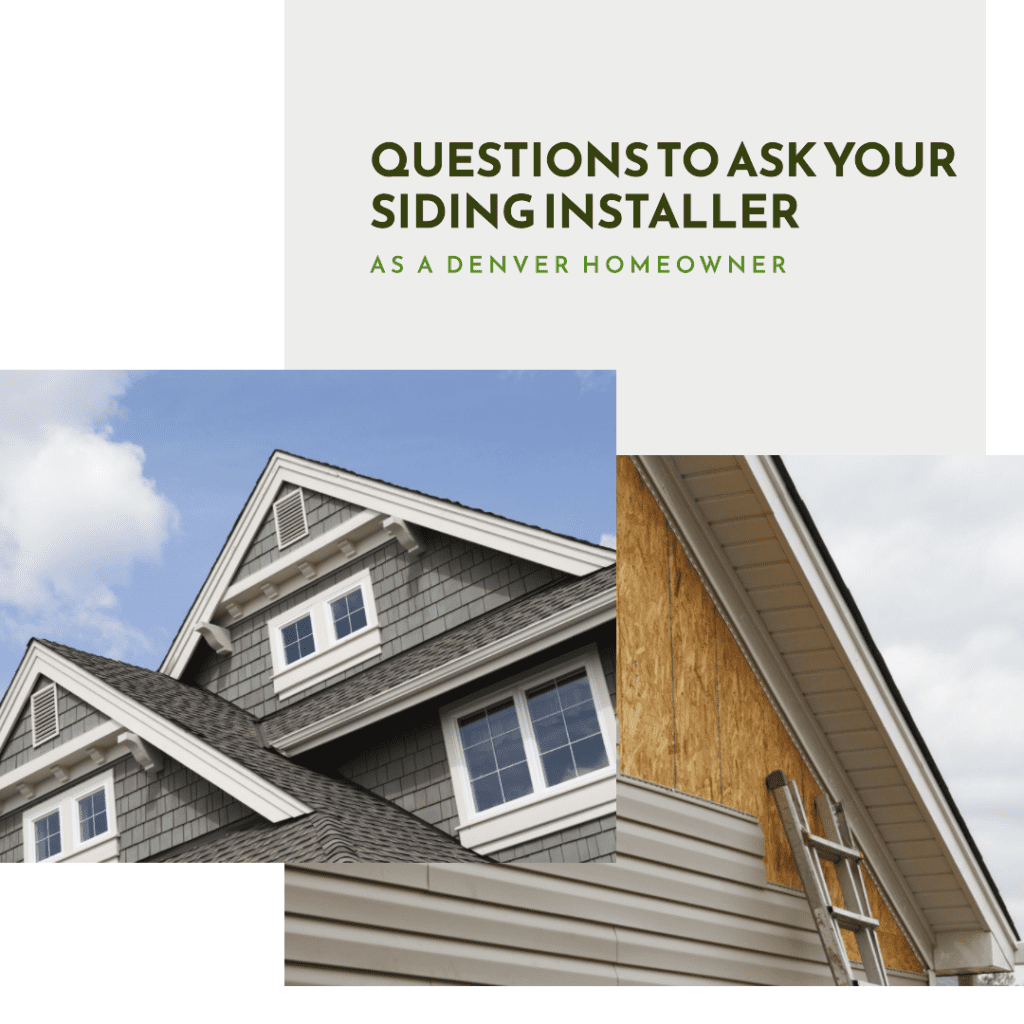
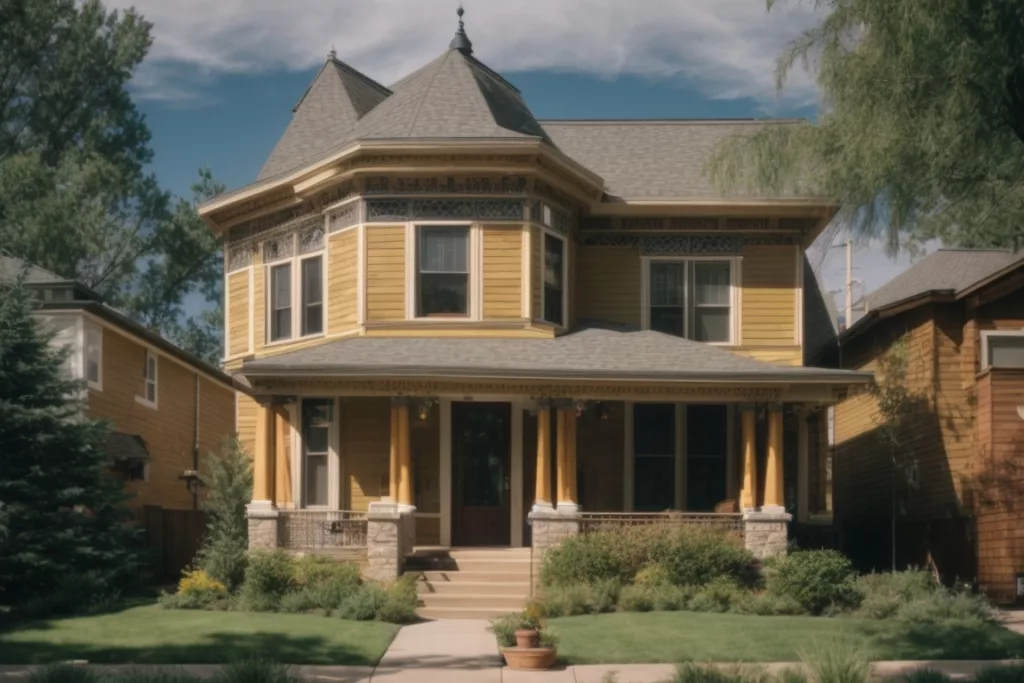
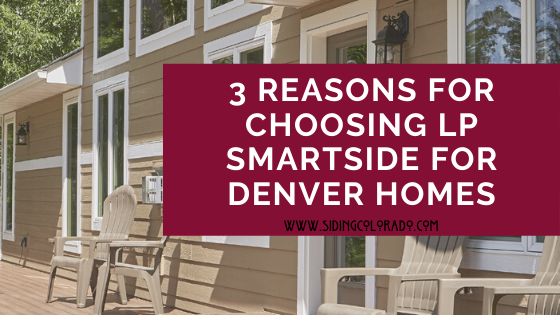
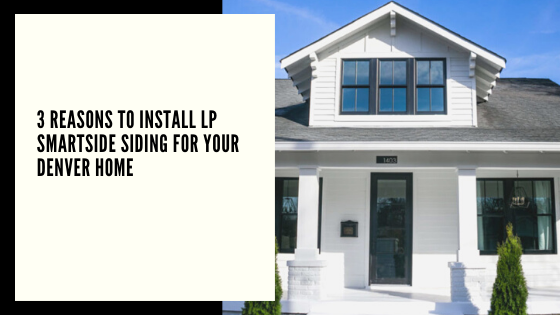
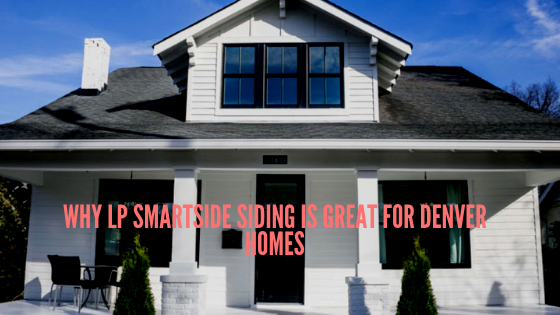
About The Author: Martin Faith
Martin Faith is the founder and owner of Siding Colorado. Shortly after moving to Colorado from Scotland, Martin had a negative experience with a local home improvements contractor, which inspired him to start his own company. Siding Colorado was born which quickly became the largest and most successful siding company in the area. Martin and his team have experience installing siding of all types, including vinyl, fiber cement, wood, and steel, for a range of residential and commercial buildings. They are trusted by homeowners all throughout the state of Colorado, including the Denver, Boulder, Fort Collins, and Colorado Springs metro regions.
More posts by Martin Faith